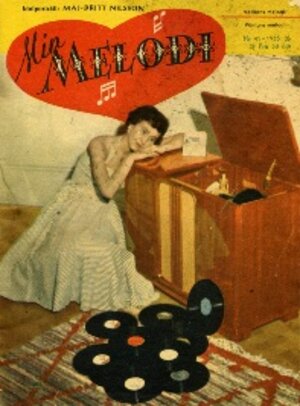Labour market
As with most subjects in the humanities, a qualification in Media History will not immediately grant the student with a professional title. Even if it is possible to end up as an academic media historian (researcher), the vast majority of students use their qualification in Media History as a complement to other subjects, such as journalism, media and communication studies, information science, art- and film studies, history, sociology, political science or gender studies.
Even so, our most recent survey of alumni from the Department of Communication and Media at Lund university (Vikström 2019) shows that an overwhelming majority of the students who completed our courses in Media History during the past few years felt very pleased and satisfied with their education. Moreover, employment statistics on post-academic life reveal that our graduates are building their careers in an impressive range of relevant professions. Among their current employment we find a vast range of job titles such as communications officer, editor, reporter, radio concept developer, junior copywriter, museum curator, museum technician, digital strategist, analyst, project assistant, sales and marketing coordinator, team manager and account manager. And to these we can add other possibilities: librarian, archivist, media teacher, publisher, civil servant, and the like.
According to the alumni survey, Media History provides a solid start for further studies in humanities and social sciences. The benefits highlighted by alumni include learning to recognise the value of historical orientation and knowledge, being trained to search for information and analyse source materials, and developing improved reading and writing skills. Another much-appreciated gain is the ability to make critical interpretations of, and long-term predictions about, media and society. As one student states:
Since a lot of the courses focus on how people have perceived, viewed, thought about and had opinions on journalism and media throughout different times I more easily understand how people perceive them today.
(27-year old junior copywriter)
Alumni testimonials also show the use of Media History in their current occupations:
It is both about when you work with collections and when you try to understand the history of the museum collection – how people have collected and what you decide is relevant and worth saving – but also what a collection or an artefact connotes and how they have been mediated through the collections. It’s very important when it comes to the understanding of the museum as an institution.
(37-year old museum curator)
The fact that we got the opportunity to write a lot during was very positive for the role that I have at the moment. There’s also the understanding of social media and their emergence and development. This is knowledge that feels very important now when I am writing for social media.
(27-year old junior copywriter)
Finally, graduates have also felt a sense of personal fulfilment and value that we usually recognise years after leaving the university. Or as one of our students put it:
It is precisely that I several times have realised that thinking and relating to history have helped me in my work, and that this has become apparent when I have combined practise and theory.
(27-year old museum technician)

